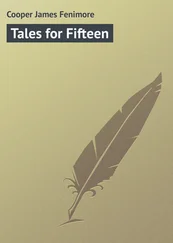James Fenimore Cooper
LEATHERSTOCKING TALES – Complete Collection: The Deerslayer, The Last of the Mohicans, The Pathfinder, The Pioneers & The Prairie
(Illustrated)
Historical Novels - The Life of Native Americans and European Settlers during the Colonization Period Illustrator: N. C. Wyeth
Published by
 Books
Books
Advanced Digital Solutions & High-Quality eBook Formatting
musaicumbooks@okpublishing.info2017 OK Publishing ISBN 978-80-7583-252-8
Introduction: Introduction: Table of Contents
DISCOURSE ON THE LIFE, GENIUS, AND WRITINGS OF JAMES FENIMORE COOPER by W. C. Bryant
Leatherstocking Tales:
THE DEERSLAYER: The First War Path
THE LAST OF THE MOHICANS: A Narrative of 1757
THE PATHFINDER: The Inland Sea
THE PIONEERS: The Sources of the Susquehanna
THE PRAIRIE: A Tale
Criticism and Biographies:
FENIMORE COOPER’S LITERARY OFFENCES by Mark Twain
JAMES FENIMORE COOPER by Thomas R. Lounsbury
JAMES FENIMORE COOPER by Mary E. Phillips
Table of Contents
DISCOURSE ON THE LIFE, GENIUS, AND WRITINGS OF JAMES FENIMORE COOPER
by W. C. Bryant
Table of Contents
It is now somewhat more than a year, since the friends of James Fenimore Cooper, in this city; were planning to give a public dinner to his honor. It was intended as an expression both of the regard they bore him personally, and of the pride they took in the glory his writings had reflected on the American name. We thought of what we should say in his hearing; in what terms, worthy of him and of us, we should speak of the esteem in which we held him, and of the interest we felt in a fame which had already penetrated to the remotest nook of the earth inhabited by civilized man.
To-day we assemble for a sadder purpose: to pay to the dead some part of the honors then intended for the living. We bring our offering, but he is not here who should receive it; in his stead are vacancy and silence; there is no eye to brighten at our words, and no voice to answer. “It is an empty office that we perform,” said Virgil, in his melodious verses, when commemorating the virtues of the young Marcellus, and bidding flowers be strewn, with full hands, over his early grave. We might apply the expression to the present occasion, but it would be true in part only. We can no longer do anything for him who is departed, but we may do what will not be without fruit to those who remain. It is good to occupy our thoughts with the example of great talents in conjunction with great virtues. His genius has passed away with him; but we may learn, from the history of his life, to employ the faculties we possess with useful activity and noble aims; we may copy his magnanimous frankness, his disdain of everything that wears the faintest semblance of deceit, his refusal to comply with current abuses, and the courage with which, on all occasions, he asserted what he deemed truth, and combated what he thought error.
The circumstances of Cooper’s early life were remarkably suited to confirm the natural hardihood and manliness of his character, and to call forth and exercise that extraordinary power of observation, which accumulated the materials afterwards wielded and shaped by his genius. His father, while an inhabitant of Burlington, in New Jersey, on the pleasant banks of the Delaware, was the owner of large possessions on the borders of the Otsego Lake in our own state, and here, in the newly-cleared fields, he built, in 1786, the first house in Cooperstown. To this home, Cooper, who was born in Burlington, in the year 1789, was conveyed in his infancy, and here, as he informs us in his preface to the Pioneers , his first impressions of the external world were obtained. Here he passed his childhood, with the vast forest around him, stretching up the mountains that overlook the lake, and far beyond, in a region where the Indian yet roamed, and the white hunter, half Indian in his dress and mode of life, sought his game,—a region in which the bear and the wolf were yet hunted, and the panther, more formidable than either, lurked in the thickets, and tales of wanderings in the wilderness, and encounters with these fierce animals, beguiled the length of the winter nights. Of this place, Cooper, although early removed from it to pursue his studies, was an occasional resident throughout his life, and here his last years were wholly passed.
At the age of thirteen he was sent to Yale College, where, notwithstanding his extreme youth,—for, with the exception of the poet Hillhouse, he was the youngest of his class, and Hillhouse was afterwards withdrawn,—his progress in his studies is said to have been honorable to his talents. He left the college, after a residence of three years, and became a midshipman in the United States navy. Six years he followed the sea, and there yet wanders, among those who are fond of literary anecdote, a story of the young sailor who, in the streets of one of the English ports, attracted the curiosity of the crowd by explaining to his companions a Latin motto in some public place. That during this period he made himself master of the knowledge and the imagery which he afterwards employed to so much advantage in his romances of the sea, the finest ever written, is a common and obvious remark; but it has not been so far as I know, observed that from the discipline of a seaman’s life he may have derived much of his readiness and fertility of invention, much of his skill in surrounding the personages of his novels with imaginary perils, and rescuing them by probable expedients. Of all pursuits, the life of a sailor is that which familiarizes men to danger in its most fearful shapes, most cultivates presence of mind, and most effectually calls forth the resources of a prompt and fearless dexterity by which imminent evil is avoided.
In 1811, Cooper, having resigned his post as midshipman, began the year by marrying Miss Delaney, sister of the present bishop; of the diocese of Western New York, and entered upon a domestic life happily passed to its close. He went to live at Mamaroneck, in the county of Westchester, and while here he wrote and published the first of his novels, entitled Precaution . Concerning the occasion of writing this work, it is related, that once, as he was reading an English novel to Mrs. Cooper, who has, within a short time past, been laid in the grave beside her illustrious husband, and of whom we may now say, that her goodness was no less eminent than his genius, he suddenly laid down the book, and said, “I believe I could write a better myself.” Almost immediately he composed a chapter of a projected work of fiction, and read it to the same friendly judge, who encouraged him to finish it, and when it was completed, suggested its publication. Of this he had at the time no intention, but he was at length induced to submit the manuscript to the examination of the late Charles Wilkes, of this city, in whose literary opinions he had great confidence. Mr. Wilkes advised that it should be published, and to these circumstances we owe it that Cooper became an author.
I confess I have merely dipped into this work. The experiment was made with the first edition, deformed by a strange punctuation—a profusion of commas, and other pauses, which puzzled and repelled me. Its author, many years afterwards, revised and republished it, correcting this fault, and some faults of style also, so that to a casual inspection it appeared almost another work. It was a professed delineation of English manners, though the author had then seen nothing of English society. It had, however, the honor of being adopted by the country whose manners it described, and, being early republished in Great Britain, passed from the first for an English novel. I am not unwilling to believe what is said of it, that it contained a promise of the powers which its author afterwards put forth.
Читать дальше

 Books
Books










